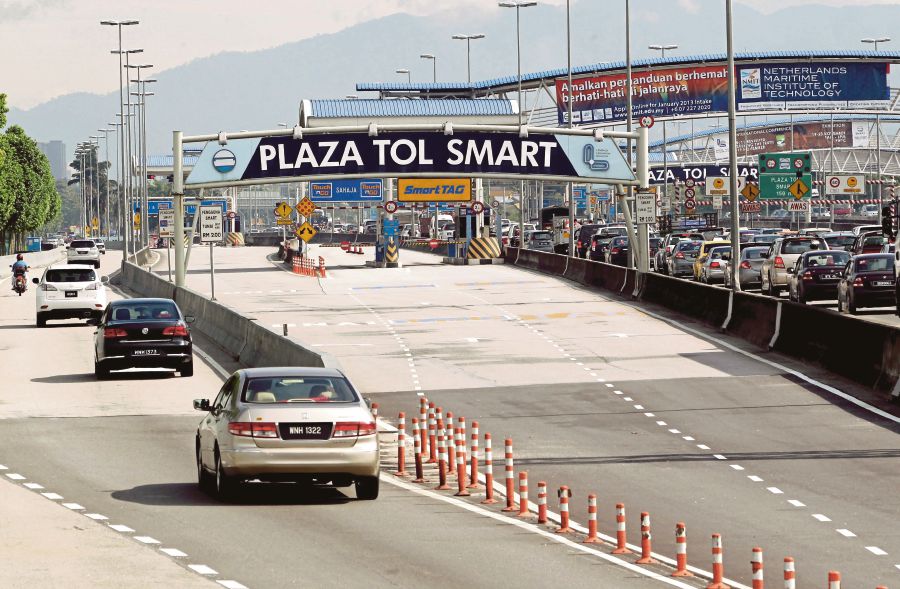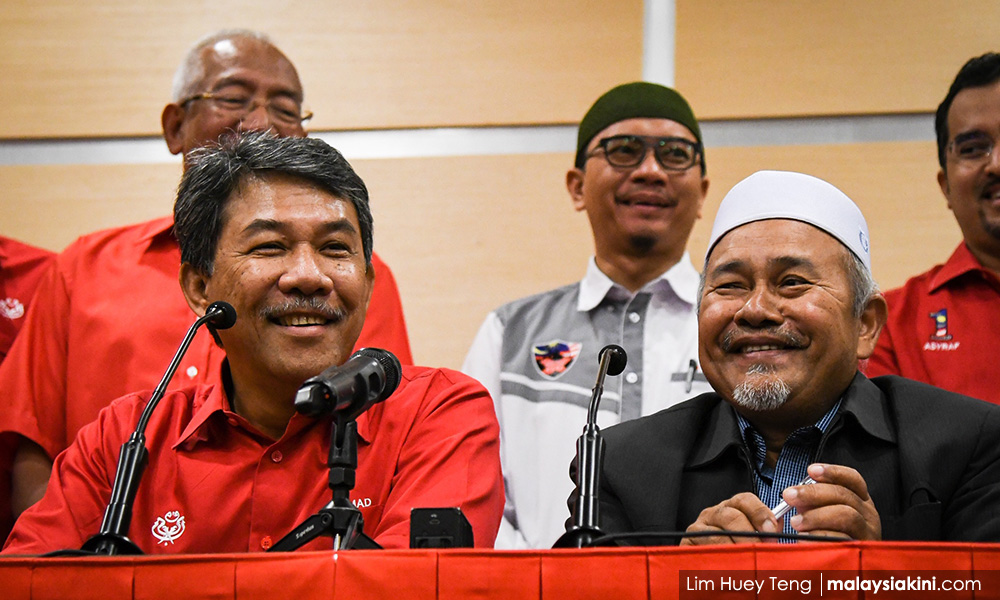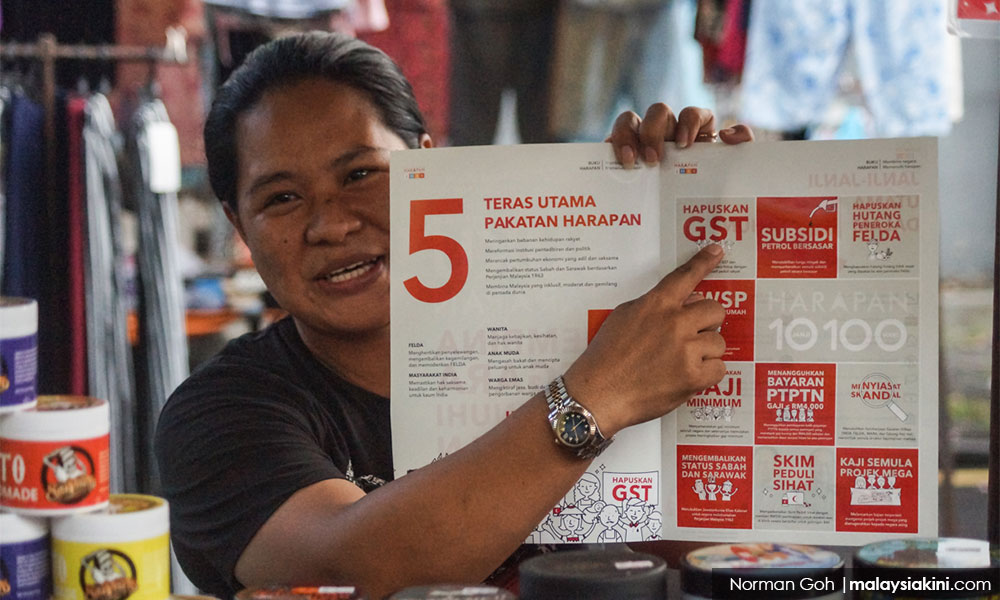
Published by The Malaysian Insight, image from News Straits Times.
ONE of the most effective ways for Pakatan Harapan to show that they are serious about putting good governance above petty politics is to focus on fulfilling their GE14 manifesto.
Fulfilling manifesto promises is not something that needs to be done blindly or too rigidly. In our fast evolving national and global economy, it is in Malaysia’s best interests that each manifesto promise be adaptable to changing circumstances. In other words, it is important to recalibrate when necessary, as long as the recalibration is done based on sound principles and solid data, as well as explained convincingly to the public.
There are also times when sections of the manifesto are misread or misinterpreted. Most recently, Pakatan Harapan announced some early ideas on how to lower the cost of tolls. In order to evaluate their announcement, it is important that we look once again at the precise wording of the relevant manifesto section, under Promise 6:
“The Pakatan Harapan government will review all highway concession agreements. We will renegotiate to obtain the best value for money for the people so that we can take over the concessions with the ultimate view of abolishing tolls gradually. We believe that infrastructure like roads and highways are the responsibility of the government for the people. The Pakatan Harapan government will provide fair compensation to the affected companies.”
Some have misread this as meaning that Pakatan Harapan will abolish all tolls in their first term of power. As can be seen above, this is clearly untrue. The commitment is to review all highway concessions, renegotiate and look towards abolishing tolls gradually.
There are many obvious reasons why it would be irresponsible to simply abolish all tolls. Let us take a look at the four highways involved in the government’s latest announcement: Lebuhraya Damansara-Puchong (LDP), Sistem Penyuraian Trafik KL Barat Sdn Bhd (SPRINT), Konsortium Expressway Shah Alam Selangor (KESAS), and Stormwater Management And Road Tunnel (SMART Tunnel).
Gamuda has the highest stakes in these highway concessions; 70% in KESAS, 52% in SPRINT, 50% in SMART Tunnel and 44% in Lingkaran Trans Kota (Litrak). Public Investment Bank said that after the deal gets sealed, Gamuda will be a cash-rich company from the government acquiring their highway concession assets valued at an estimate of RM5.01 billion.
Regarding the abolition of tolls, Prime Minister Dr Mahathir Mohammad said: “To cancel all the rates becomes too expensive. We need to buy the tolled road. When you buy, you need to raise money and service the loans that we raise. So we try to reduce the money (costs) we have to pay for acquiring highways. That will go stage-by-stage and step-by-step.”
If we continue with this policy, it is important to consider what the total costs of acquiring all the highways in Malaysia would be. It is reported that there are currently 29 tolled highways in the country and the total cost of acquiring all the toll concessions is estimated to be around RM130 billion to RM145 billion (a total which includes RM52 billion of debt). Let us also not forget that the total annual cost of maintaining these tolled roads is roughly RM1.5 billion to RM2.5 billion.
The Edge writer Jose Barrock writes in his article on June 5, 2018 that “according to Rating Agency Malaysia Ratings, as of May 15, 2018, the toll road sector comprised 23 issuers with a notable RM52.83 billion of bonds and sukuk outstanding, excluding loan stocks”.
All in all, if we were to take into account all the costs mentioned above, we can estimate that the newly formed government will have to fork out a shocking RM250 billion or more, with an annual upkeep value of RM3 billion. Keep in mind that the country is already RM1 trillion in debt.
Although the government is spewing optimism, with all the costs they have to bear, it is only right that we raise a few concerns: How would the government make up for the lost of income in abolishing tolls? Would that mean the increase of the sales and service tax? Would it mean the end of subsidies or government discounts?
Finance Minister Lim Guan Eng said that “the only thing that will cost us is the maintenance. And that can be covered by road tax”. Is he implying that road tax rates will increase? According to an article by Melissa Darlyne Chow on Free Malaysia Today, the total revenue collected from the 29 highways in 2017 was RM74.65 billion. The article also discussed how construction costs for the tolled highways, maintenance costs, and employee compensations had come up to RM35.14 billion, RM2.5 billion and RM5.109 billion respectively (from 1990 until present).
CIMB Investment Bank Bhd research analyst Sharizan Rosely said “most toll concessionaires are uncertain of the direction of the new government in terms of carrying this (abolishment of tolls) out. For now, they are just waiting for more clarity as to which tolls are to be continued and which are to be abolished”.
The stock prices of listed companies with highway concessions fell due to this uncertainty and companies such as IJM Corp Bhd, Gamuda Bhd and Lingkaran Trans Kota Holdings Bhd incurred a lost of more than RM1 billion of their market capitalisation. Not only that, Emir Zainul wrote in an article published on May 28 that due to the costs of the abolishment, there might be a shift to the bond holders of the highways since the cost of the action would affect the government’s fiscal consolidation plan and unfavourably impact Malaysia’s sovereign ratings.
In Pakatan Harapan’s manifesto, Promise Six mentions that the monopoly of the toll concessions by these companies should be stopped and negotiations will be initiated in order to lower the price of acquiring these concessions. Pakatan Harapan believes and argues in its manifesto that it is the responsibility of the government to provide the people with such basic infrastructure such as roads and highway.
There is more than one way to fulfil this promise. The question is: which way is the best? Is it worth it for the government to acquire all these concessions and bear the cost of maintenance of the highway for the people? On the other hand, should Pakatan harapan lose a major short-term source of income through immediate abolition of tolls, or should they retain this source of income for now and use those funds to benefit a larger number of Malaysians?
In my opinion, although the abolishment of highway tolls might sound like a huge win for Malaysians and temporarily boost public sentiment towards Pakatan Harapan, this complex issue raises a lot of questions and concerns that need to be addressed transparently. Abolishing tolls requires a more comprehensive understanding of the consequences and repercussions of this massive undertaking by the government. In short, it sounds good to abolish tolls, but we must always ask: is it too good to be true?
The manifesto can and should remain the backbone of Pakatan Harapan’s approach to good governance, but its execution must be handled based on sound long-term economic principles and planning. This way, Pakatan Harapan can fulfil both its individual promises as well as its larger overall promise to govern Malaysia responsibly. – March 6, 2019.
Afnan ‘Aqif is Research Associate at EMIR Research, an independent think-tank focused on strategic policy recommendations based upon rigorous research.

